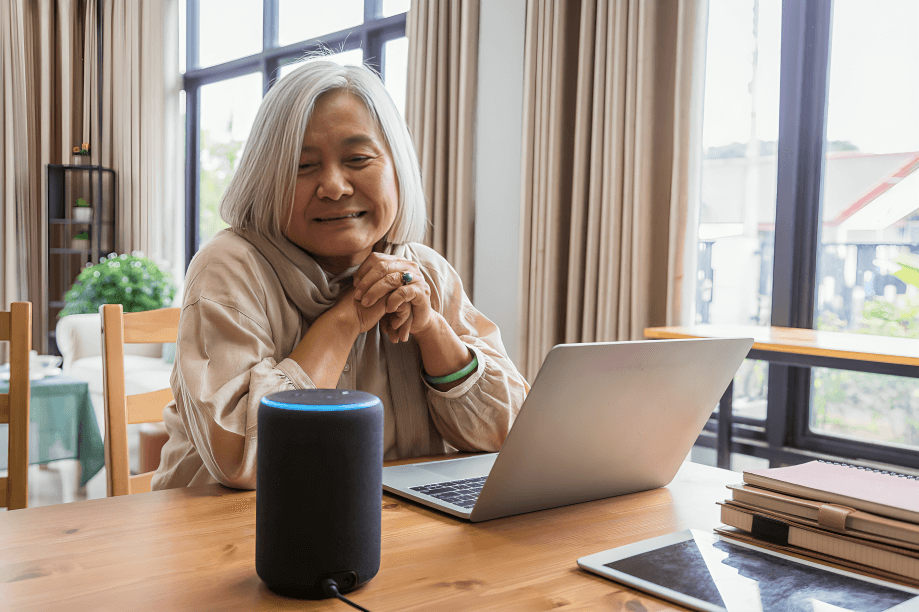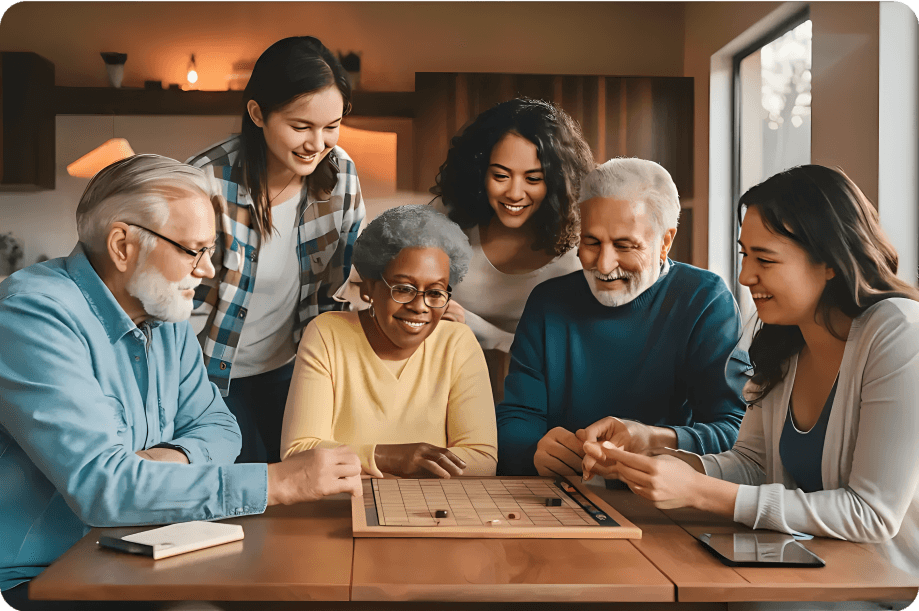
“
In today’s digital age, how technology helps seniors stay connected has become a crucial focus for families, caregivers, and healthcare providers alike. Whether it’s video calls with grandchildren or joining online hobby groups, seniors are no longer bound by physical limitations when it comes to communication. 1
1
”
Seniors stay connected through messaging apps like WhatsApp and Signal, allowing quick, private chats with loved ones when in-person visits aren't possible. 1
Video-calling apps like Zoom, Skype, and FaceTime help older adults see family in real-time, reducing loneliness and maintaining emotional bonds from afar. 2

Voice assistants like Alexa and Google Assistant support seniors by enabling hands-free calls and reminders, ideal for those with mobility or vision issues.
Social media platforms such as Facebook let seniors share photos, comment on family updates, and engage in community discussions—bridging generational divides and offering a feeling of connection. 3
Online multiplayer games and brain-training apps not only stimulate cognition but also allow older adults to chat and play with peers worldwide, turning screen time into social bonding time. 4
Email remains a favored tool among seniors for sharing thoughtful messages, digital letters, or important updates, maintaining regular communication without requiring fast-paced responses. 5
Some seniors use wearable devices like smartwatches with call and emergency functions, ensuring they can easily stay in contact during emergencies or when away from the phone. 6
Telemedicine allows seniors to consult doctors via video calls, creating meaningful healthcare communication while giving them peace of mind and saving travel time to clinics or hospitals. 7

Family photo-sharing apps let seniors browse updated albums on tablets, helping them feel emotionally present in family milestones such as birthdays, graduations, and vacations even from afar.
Online forums and senior-specific discussion boards provide a safe place to exchange ideas, stories, and support, reducing isolation by creating bonds among those with shared life experiences. 8
Seniors with hearing loss benefit from captioned video calls and amplified phone apps, ensuring that they stay included in conversations and never miss key family discussions due to technical limitations. 9
Some churches and cultural centers stream weekly services and events online, enabling seniors to participate in spiritual or cultural life regularly without needing transportation or physical effort. 10
Caregivers and loved ones use GPS-enabled apps to track and communicate with seniors living alone, offering both sides reassurance, security, and easier coordination for visits or check-ins. 11
Learning new technology encourages cognitive activity, and many seniors take online classes to develop digital skills, leading to deeper social integration and confidence in digital communication. 12
Tech-enabled hobbies such as virtual gardening classes, art tutorials, or online cooking clubs let seniors meet others who share their passions, creating friendships through shared interests. 13

Digital memoir platforms help seniors share life stories with family in audio, video, or text formats, deepening family bonds and allowing meaningful storytelling across generations.
Smart TVs and YouTube allow seniors to watch live family events, educational lectures, or entertainment with interactive comments—bringing real-time social viewing into the living room. 14
Seniors engaged in online volunteering can mentor, counsel, or support others remotely, gaining a sense of purpose and maintaining important social roles through digital interaction. 15
Families use private group apps like Marco Polo or Life360 to share updates and messages, creating a safe, easy-to-use space where seniors feel included and regularly informed. 16
Philosopher Viktor Frankl believed purpose gives life meaning. For many seniors, digital tools restore that purpose—through connection, interaction, and the joy of being actively present in their families’ lives. 17


